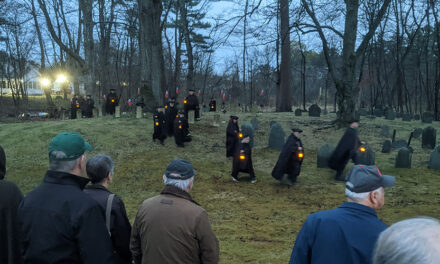Published in the October 14, 2015 edition
When Town Meeting convenes next Monday night, voters will be asked to approve a monumental change in town government.
Warrant Article 4 is a citizens’ petition that seeks to expand the Board of Selectmen from three members to five. This possibility has brought inevitable comparisons to our North Reading and Saugus neighbors, whose five-member Boards of Selectmen have a reputation for dysfunctionality and micromanagement. We question whether Lynnfield wants to take this route.
North Reading’s selectmen have a tendency to split into different camps, just like their Lynnfield counterparts. That board also sometimes fails to reach a consensus on issues, including those where common ground should be easy to find.
If a simple majority of Lynnfield’s voters agree with Article 4, the town will proceed to the next step: Petitioning the state Legislature to amend the 1971 Town Charter.
According to Town Administrator Jim Boudreau, if this citizens’ petition is passed as written by Town Meeting under state law it would be considered “a home rule petition to the Legislature, which will require approval by both the House and Senate and the signature of the governor.” Once that occurs, it could take effect as soon as the April 2016 town election.
This citizens’ petition was launched by current Selectman Tom Terranova, who said in an interview with the Villager last August that he wrote it because “I am responding to my constituents’ requests for more representation, transparency and voice in town governance.”
Terranova also told the Villager the warrant article “is the first step to achieving true, unbiased representation with the town’s best interest in mind.”
We have some serious reservations about Warrant Article 4. Foremost, a change of this magnitude should not bypass a town-wide vote at the ballot box. While Town Meeting is a great form of representative government, the residents who attend Town Meeting represent only a microcosm of the town’s registered voters.
For example, the first session of last April’s Town Meeting came to a screeching halt because it was 14 voters shy of a quorum of 175 voters. The second session, held just three days later, was nixed after the quorum was not reached at all. This meant some warrant articles, including those addressing important bylaw changes in the regulation of signage proposed by the Planning Board, had to be put on hold until this October.
While a larger bloc of voters – 2,672 – cast ballots in the selectman’s race between Selectman Chris Barrett and challenger Katy Shea, that figure is still a far cry from the town’s current 8,697 registered voters.
Passing Article 4 virtually ensures that just a few hundred people will dictate the town’s political direction, possibly for the next several decades. That sounds more like a political coup than a political process to us.
We strenuously believe that the entire community should have adequate time to evaluate, process and discuss this proposal in-depth – not rush to a decision just two months after 10 registered voters signed their names to a petition.
While it’s technically legal to pursue this change via the petition process, we believe the proper forum for considering a change of this magnitude to a document adopted over 40 years ago under the Home Rule Amendment of the Constitution of the Commonwealth is to form a Charter Review Committee, as suggested by Selectmen Chairman Phil Crawford.
However, the matter of expanding the board has only been discussed in public at two selectmen’s meetings.
In other words, this warrant article is far from transparent even though its supporters pontificate that bringing transparency to local government is their ultimate goal.
Which brings us to another issue. After last year’s contentious selectman’s election ended in a recount the town became even more split into two political camps. In one camp is Selectmen Crawford and Barrett and their supporters. The other camp features Selectman Terranova, Shea and their supporters.
Supporters from both camps have interrupted speakers during selectmen’s meetings and even shout each other down in support of “their side” of an issue. It’s time for cooler heads to prevail.
We believe voters should outright reject or pass over Article 4 on Oct. 19. If voters want to discuss the proposal in a civil manner at a later date, we more than encourage them to do so. But ramming through a warrant article with little public input or scrutiny is far from democratic.
Even if the status quo remains, we encourage the selectmen and their respective camps to strive to find common ground and work together for the common good.
The townspeople, present and future, deserve that much.




